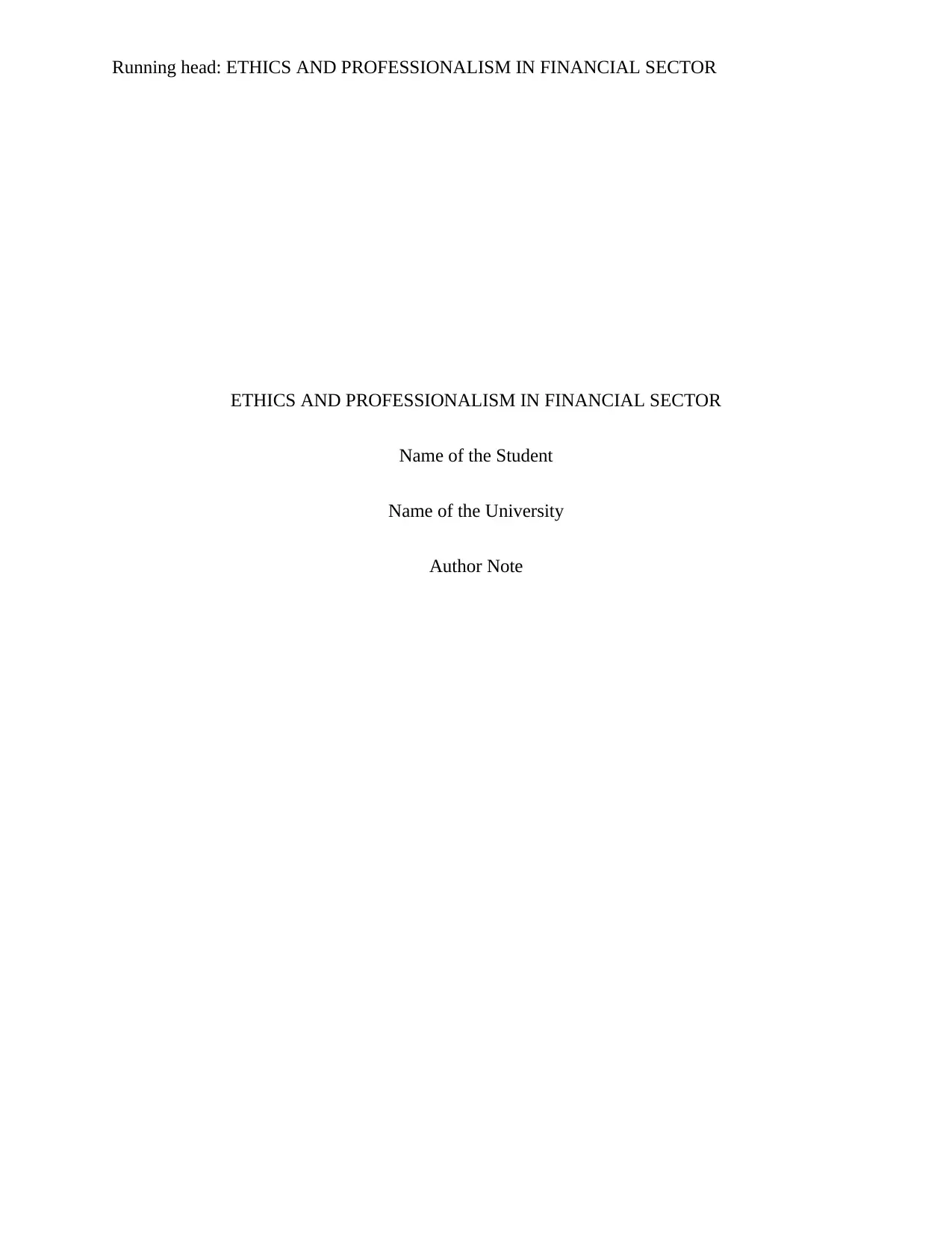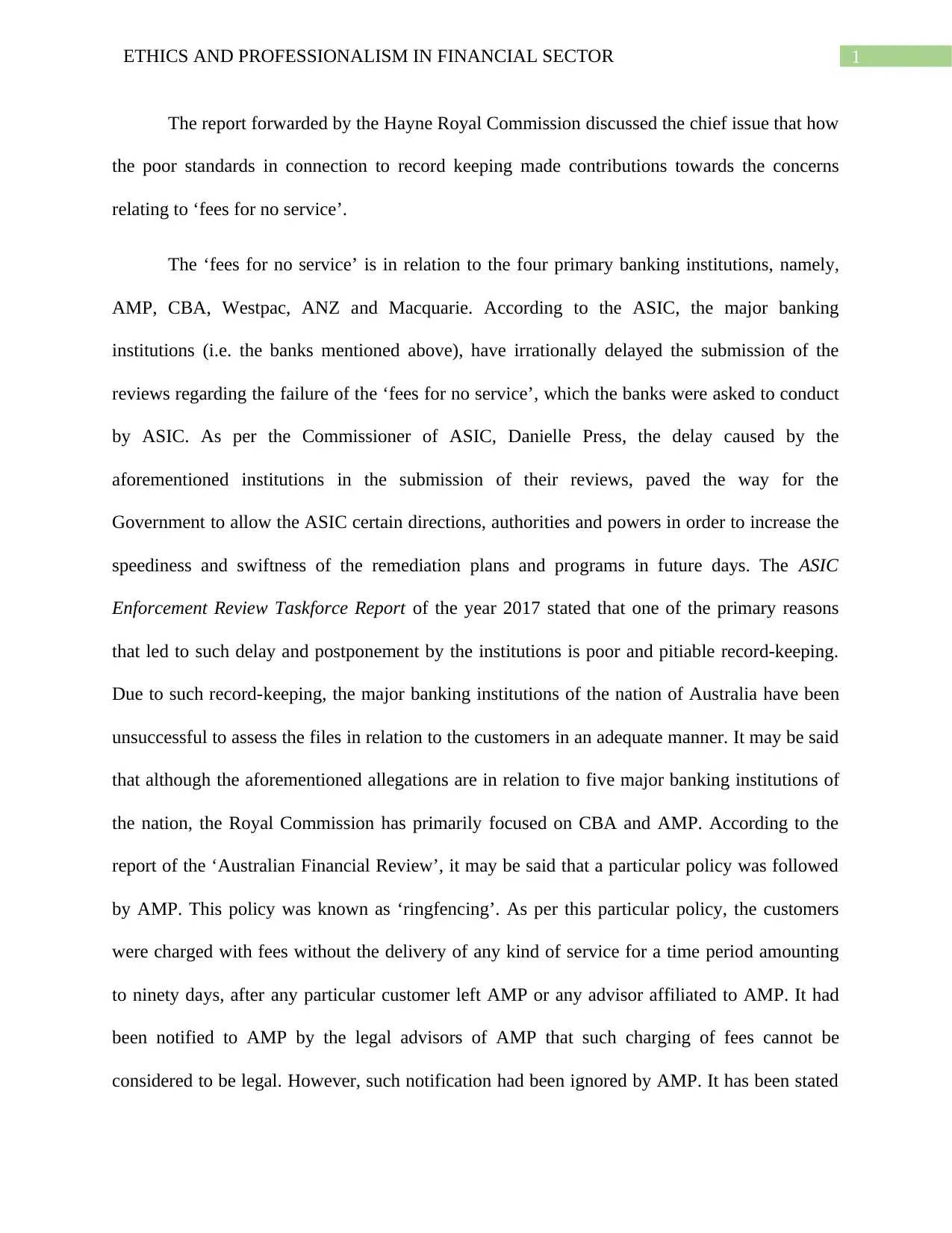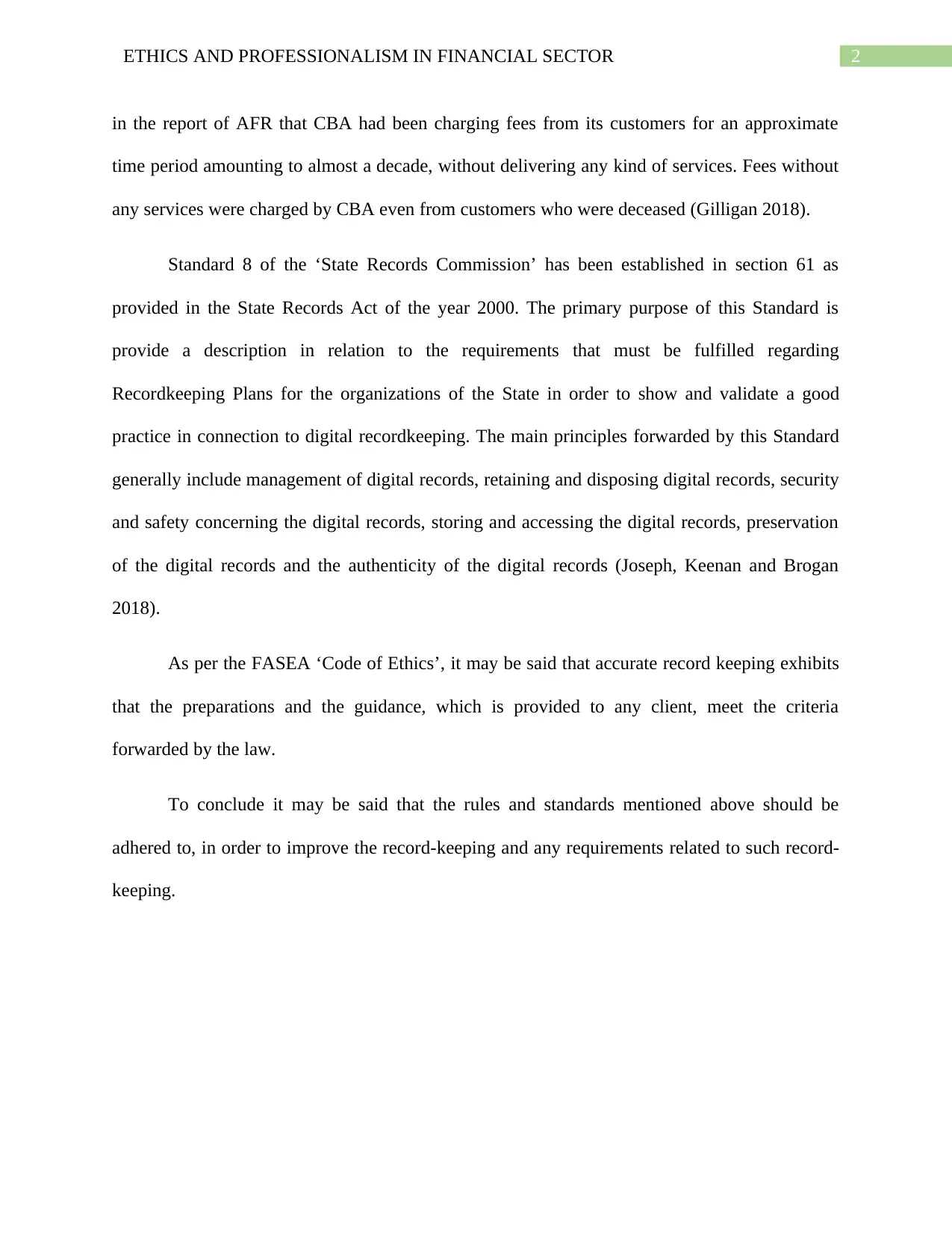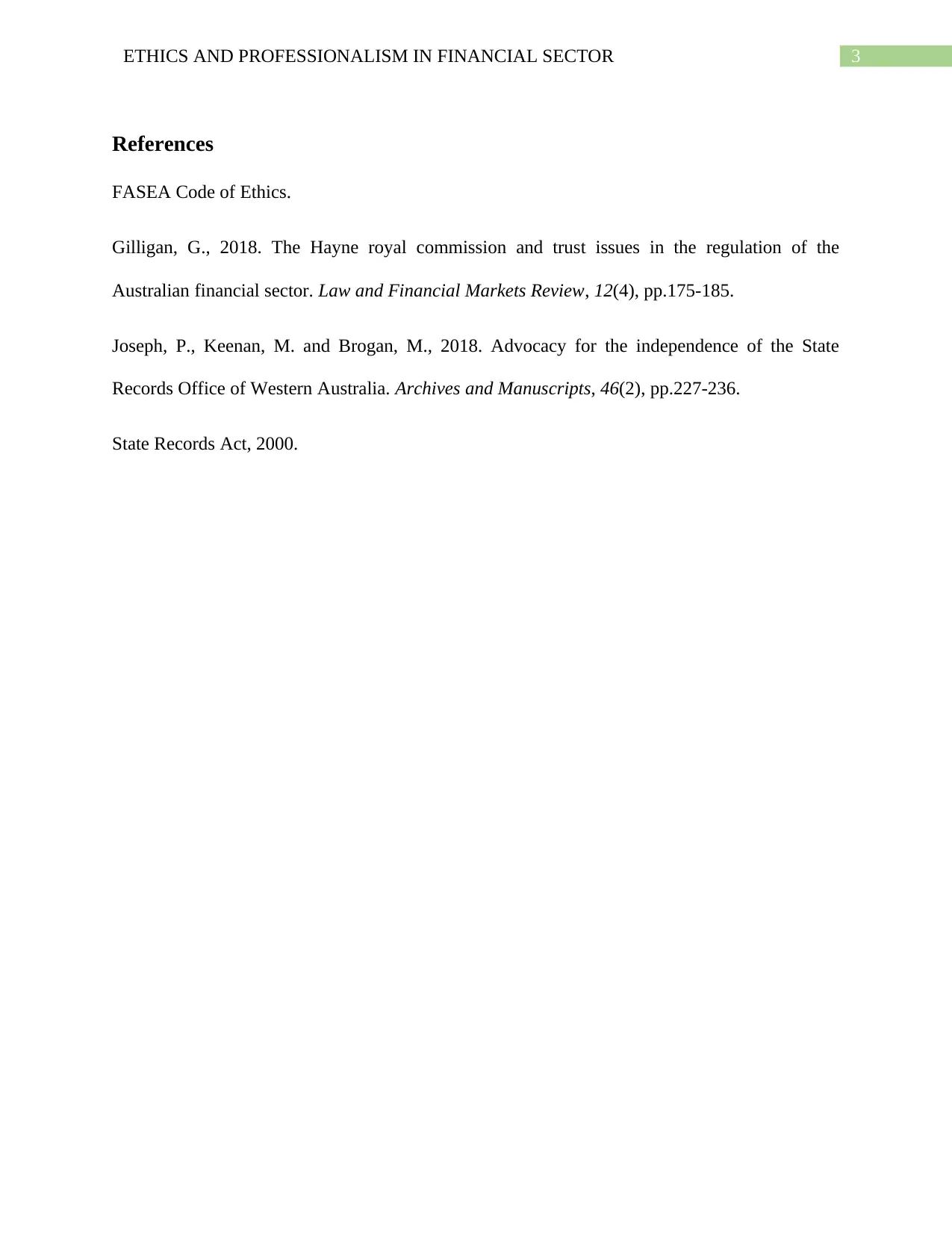Analysis of Ethics and Professionalism in the Financial Sector Report
VerifiedAdded on 2022/08/15
|4
|756
|17
Report
AI Summary
This report delves into the critical aspects of ethics and professionalism within the financial sector, focusing on the implications of poor record-keeping practices. It examines the findings of the Hayne Royal Commission, particularly the issues of 'fees for no service' and the delayed submission of reviews by major banking institutions such as AMP, CBA, Westpac, ANZ, and Macquarie. The report highlights how inadequate record-keeping contributed to these issues, leading to regulatory scrutiny by ASIC. It discusses specific instances of unethical behavior, such as AMP's 'ringfencing' policy and CBA's charging of fees for services not rendered, including to deceased customers. The report also references relevant standards and regulations, including Standard 8 of the State Records Commission and the FASEA Code of Ethics, to emphasize the importance of accurate record-keeping and adherence to ethical guidelines within the financial sector. The report concludes by underscoring the need for improved record-keeping practices and compliance with ethical standards to restore trust and integrity in the financial industry.
1 out of 4










![[object Object]](/_next/static/media/star-bottom.7253800d.svg)